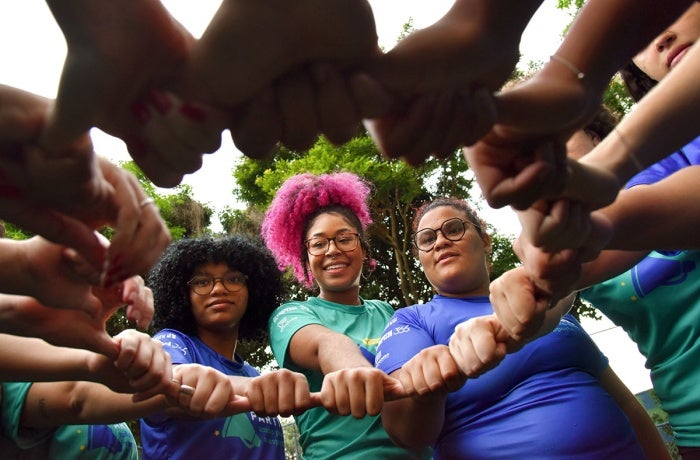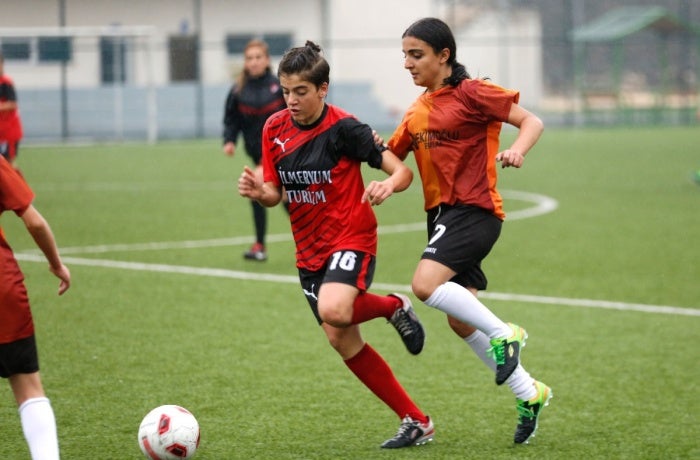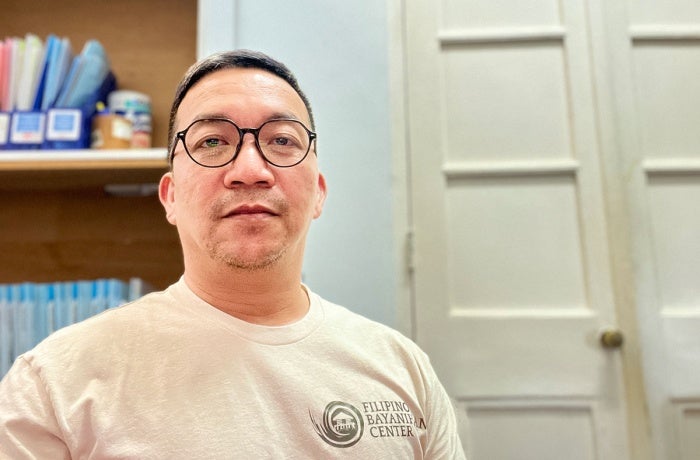How an Olympic medal for women’s rugby helped efforts to end gender-based violence in the Pacific Islands
When the Fijian women’s rugby team won a bronze medal at the Tokyo 2020 Olympics, “I had hundreds of calls from girls in Fiji and Fijians overseas wanting to come and join,” said team coach Saiasi Fuli, in an interview with Radio New Zealand.
That win—the first Olympic medal for a women’s team from any Pacific Island nation—has accelerated women’s participation in rugby throughout the region.
Fijians across the country and the diaspora will soon watch again as the women’s rugby team takes to the Olympic field. In the years since Tokyo, Fijian women’s participation in rugby has more than doubled, with about 16,000 players as of 2023.
More women in the Pacific region are also getting involved in coaching, match officiating, and leadership roles within the rugby community.
One programme aiming to contribute to these efforts by supporting boys and girls’ involvement in the sport is Get into Rugby PLUS, supported by UN Women through the Pacific Partnership to End Violence Against Women and Girls.
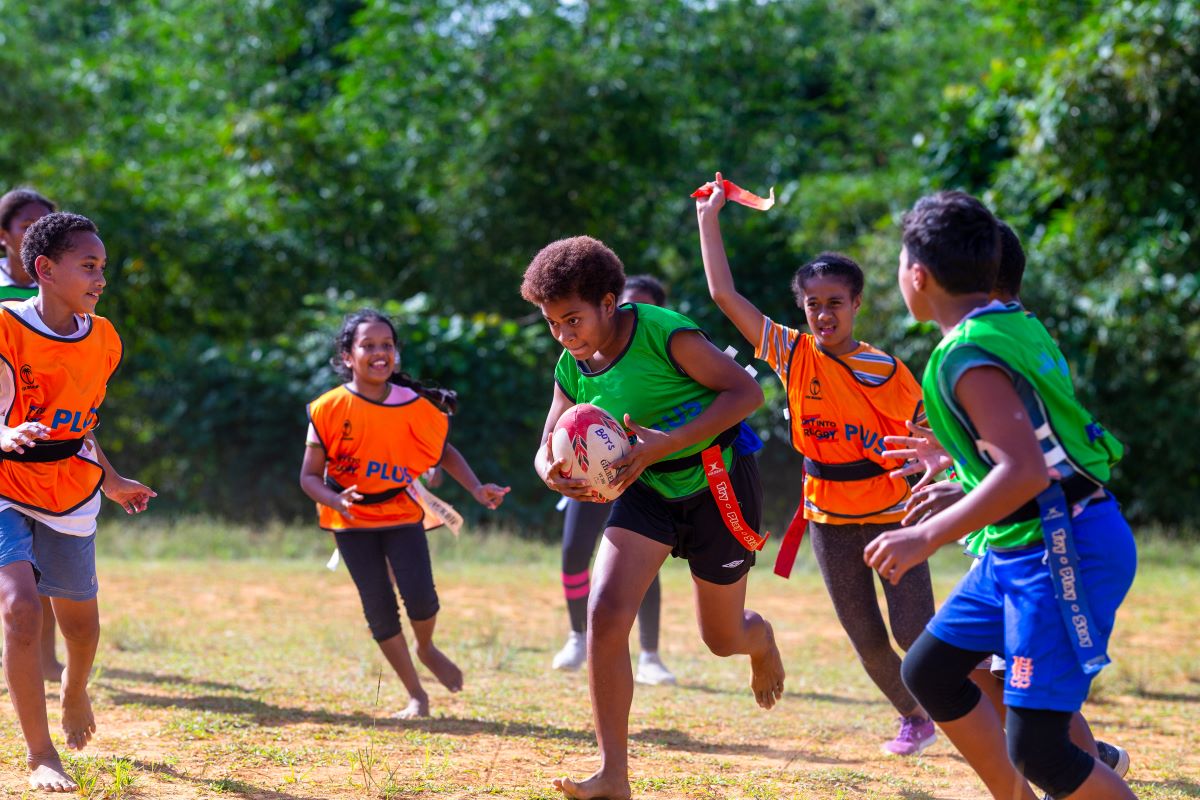
Based on a 20-session programme, participants take part in rugby activities that integrate lessons and discussions on gender equality, while incorporating rugby’s values of respect, integrity, solidarity, discipline, and passion. On the field, participants are given an opportunity to learn tag rugby in a safe, non-contact playing environment.
After attending Get into Rugby PLUS programming in Fiji, the number of female players who “strongly disagreed” that harassment was sometimes a girl’s fault jumped from 44 per cent to 70 per cent. In Samoa, 92.2 percent of boys moved away from believing males are better leaders than females, with 70 percent of male and female players no longer agreeing with stereotypical statements about how girls and boys should act.
“The programme is designed to focus on achieving gender equality and addressing violence against women and girls. The coaches undergo intense gender sensitization, safeguarding, and child protection training, in addition to the World Rugby courses,” said Tihrani Uluinakauvadra, Oceania Rugby’s Participation and Pathways Manager, who has worked with Get into Rugby PLUS since its inception. Oceania Rugby is one of six regional associations of World Rugby, the sport’s governing body.
“We all know behavioural change doesn’t happen overnight, so we provide continuous support to the coaches, who also support each other,” Uluinakauvadra said.
“It was not until I came into the programme that I started to learn that the root cause of violence against women and girls is gender inequality,” he added. “Many men dictate everything to their wives and daughters because of traditional and cultural ideals – that is why women and girls are not enjoying life.”
“Learning this changed my life and the way I look at things. My daughter represented Fiji in rugby at the age of 16 and my two other girls are also keen rugby players,” Uluinakauvadra said.
Since its inception in 2018, the programme has had significant impact on both players and coaches in Fiji and Samoa. The programme’s goals are also aligned with the Fiji Government’s National Action Plan to Prevent Violence Against All Women and Girls (2023-2028), which includes sport as one of the settings to promote gender equality and social norms that prevent violence against women and girls.
Get into Rugby PLUS has aligned to the strategies developed by World Rugby to increase the number of women in rugby. Those strategies, which have also been implemented by the local Fiji Rugby Union, include requiring any provincial team that plays in national competitions to also have a women’s team, and for any rugby sevens tournament in Fiji to also include women’s teams.
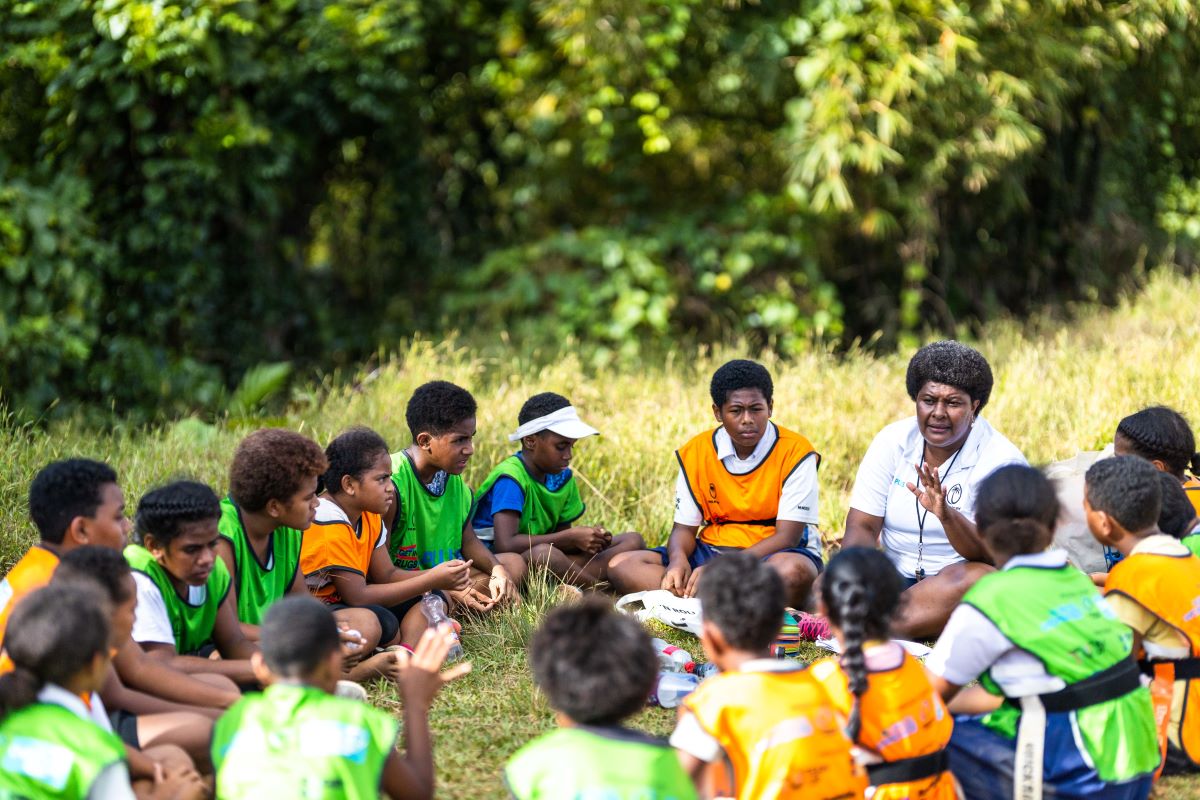
World Rugby and Oceania Rugby have also worked to provide more opportunities for women to take on meaningful positions in rugby leadership and governance through the Capgemini Women in Rugby Leadership programme and by building the Oceania Women’s Rugby Network and the Oceania Rise Rugby Women’s Governance and Mentoring Programme.
UN Women Fiji MCO Representative Delphine Serumaga said: “The Pacific has some of the highest rates of violence against women and girls, and UN Women, through the Pacific Partnership, has been collaborating closely with sporting partners for the past five years to address it, recognizing the power that sport has in the region to influence transformational change.”
In 2022, Get into Rugby PLUS welcomed two members of Fiji’s ‘rugby royalty’ as programme ambassadors: national captains and Olympic medalists Rusila Nagasau and Jerry Tuwai.
Tuwai proudly shared that his young daughter used to want to play rugby like him, but now wants to “play rugby like Rusila Nagasau”, after watching Nagasau lead the women’s team to their medal at the Tokyo Olympics.
“I’m so happy to be an Ambassador for Get into Rugby PLUS,” Nagasau said. “It has done much to encourage more girls to play rugby and for women to coach. But even more importantly, it is changing mindsets of girls and boys around gender equality, and there is no place for violence, ever. Sport is for everyone.”






